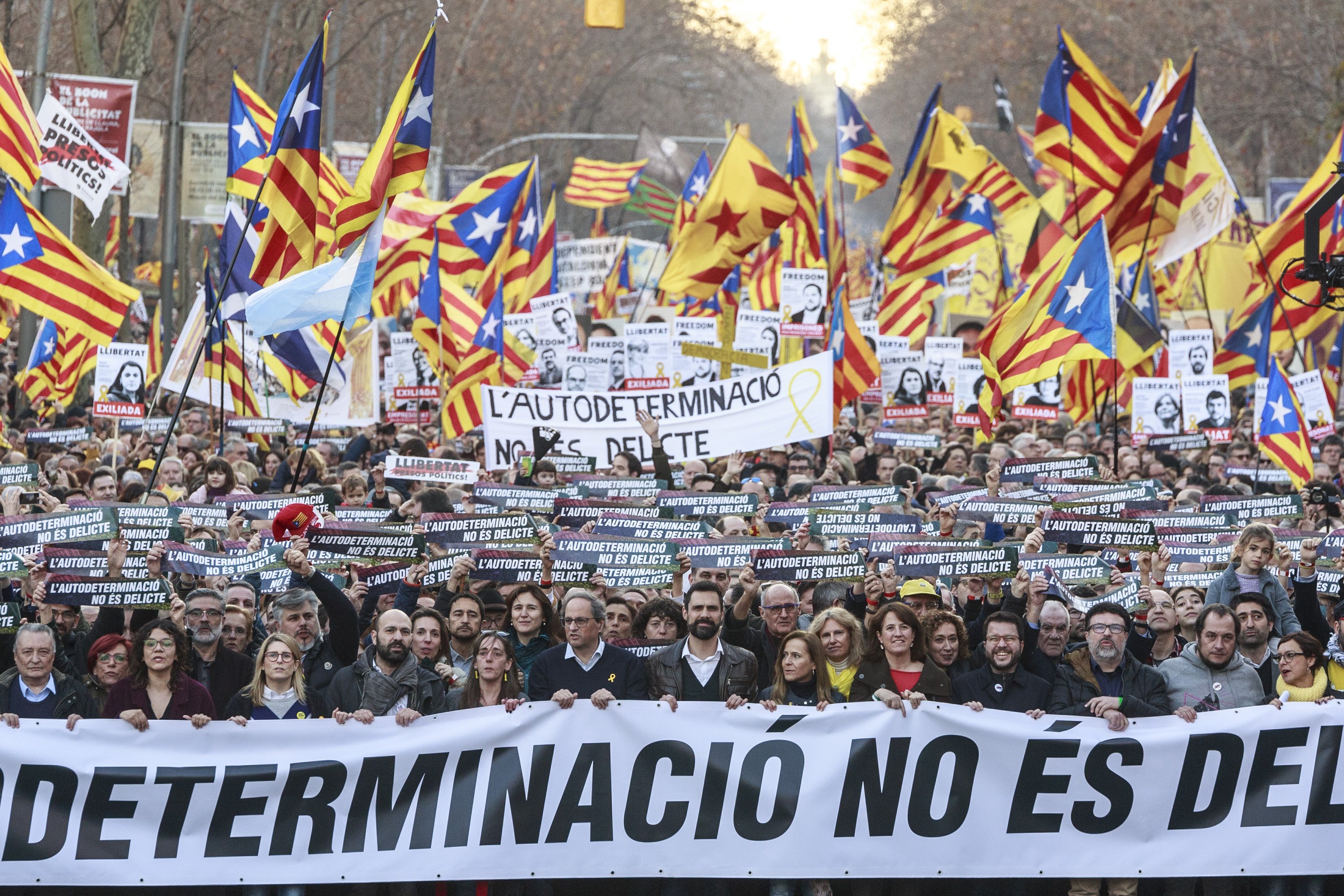Six in the afternoon at Madrid's Neptune fountain, where Atlético football fans celebrate their victories. This is the meeting point for the unprecedented demonstration that the Catalan independence movement has called this Saturday in the Spanish capital, with the motto "Self-determination is not a crime." The march route goes via the Paseo del Prado to end at Cibeles, the place where the city's other football team, Real Madrid, celebrate titles -in the years when they win, that is. The organizers are aiming for a turn-out of between 45,000 and 50,000, a figure similar to the number who attended the major pro-independence rally in Brussels, shortly after the imposition of direct rule over Catalonia, in December 2017. With just a few hours to go until the march, the target might be reached.
From the small hours of Saturday morning, as many as 500 coaches will set off for the capital of Spain, arriving from late morning onwards with thousands of demonstrators. Sources in the organization have told El Nacional that, of these buses, about 390 originate in Catalonia - thus, perhaps surprisingly, more than 100 vehicles will head to Madrid from other parts of the Spanish state: Euskadi, Galicia, Aragon and Andalusia. At about fifty passengers per coach, this means that at least 5,500 people are expected in Madrid from elsewhere than Catalonia. And the arithmetic also confirms the presence of at least 25,000 demonstrators, counting only those who come by coach.
In addition, there are at present ten high-speed AVE trains to Madrid fully booked, and five more that are close to full. Another important group of Catalans will travel by plane and more still will make the journey by car.
The forecast is that the journey to Cibeles will take about half an hour, that the speeches will begin at 6:30pm and that it will all be over at eight. The date chosen has its own resonance: Saturday, March 16th, marks exactly one year and five months that civil leaders the Jordis have been in jail. This will be the first time in history that the independence movement has held a mass rally in Madrid. The pro-independence groups ANC and Òmnium want to challenge the conscience of ordinary Spaniards, and at the same time, attract some international attention. The question still in the air is: will any Spanish political leader turn up?

